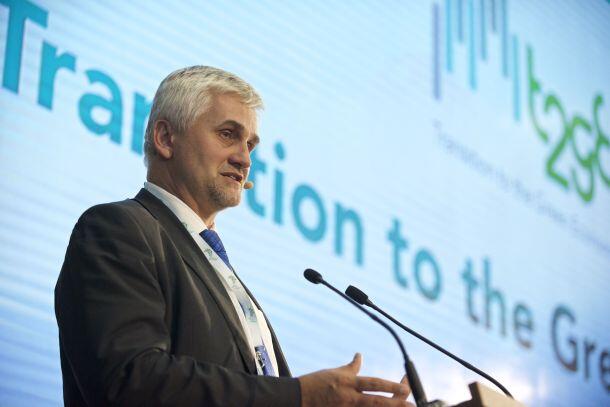This article was exclusively written for The European Sting by Mr Jan Dusik, UN Environment Europe’s Director and Regional Representative. The opinions expressed in this article belong to the distinguished writer.
Last week’s fire at a waffle factory in Brussels luckily left no casualties behind. Yet the thick black smoke reminded people in the European Union’s capital how vulnerable we are to pollution.
Worldwide, the air breathed by nine out of ten people breaches World Health Organisation standards. People are now increasingly aware of the importance of air quality, which can often be seen and felt by citizens – especially city-dwellers.
Yet calls for action to protect our environment have often contributed to drastic political change.
In 1989, the Czechoslovak Velvet Revolution was born from street protests of students against poor air quality. I was a 14-year old boy, living in the industrial city of Plzen (or Pilsen) where smog was present over much of that winter. Many of my generation have developed asthma and other long-term health problems from breathing bad air. Ever since those grey November days when I attended demonstrations demanding regime change, I have always strived for a better environment for all, through my years as an activist up to my current professional path.
In 1952, a ‘Great Smog’ caused by coal burning in London literally brought the city to a halt for days. This kicked off a public debate on the environment. A few years later, two clean air acts were passed switching parts of the city to smokeless fuels and moving power stations away from cities.
Public calls to better protect the environment were also one of the causes driving the independence movement in Moldova and have led to new political parties and other political shifts in our region.
Could we now be witnessing another wave of calls for change based on the need for environmental action?
Burning need for change
This wave could take place around the need to shift away from coal. The conditions have never been better to do so, and countries are beginning to take head.
At the latest round of climate negotiations, twenty countries and two US states pledged to ditch the coal they based their industrial development on. This will go a long way towards curbing sulphur dioxide and other harmful emissions.
Yet much remains to be done. People in the former Czech industrial powerhouse of Ostrava, as well as its neighbouring Katowice – where the next climate COP will be hosted – know this all too well. There, winter inversion, industrial pollution and local heating systems overly dependent on coal burning are causing respiratory diseases and other illnesses.
In order to raise awareness of the extent and effects of pollution, the availability of robust data is key.
UN Environment is supporting this in Bosnia and Herzegovina – the second deadliest country in the world for air pollution after North Korea – by installing new monitoring stations for example. Data is available in real-time online for citizens or government to gauge the success of policy measures. All kinds of actions can be taken, including by citizens and civil society – see the mobile phone app being developed by King’s College London, which allows people to select the least polluted route to walk or cycle for example.
UN Environment also stands by communities wanting to shift away from fossil fuels. Take the city of Banja Luka in Bosnia and Herzegovina, which we are helping shift from heavy oil to renewables, saving on fuel costs while slashing emissions.
Decision time
On 4-6 December, more than 2000 government, private sector and civil society leaders will meet to review gaps in how we protect people against pollution in different parts of the world. They will consider action that can be taken to breath cleaner air, to swim safely in rivers or to eat fish not full of plastics that we leave behind.
Success in the fight against pollution is everyone’s responsibility. Everyday choices – choosing how we get to work, whether to use plastic bags in a supermarket when shopping, or recycling waste we produce at home.
Ahead of the Assembly, more than two million people around the world have signed an online pledge to beat pollution. Now they call on leaders to take bold decisions on their behalf – for governments to set directions, for companies to drive green innovation, and for civil society to mobilise public action and ensure accountability.
Equally important will be how these commitments and pledges are followed up, starting from the day after the Assembly. Solutions do not take effect overnight, and we cannot afford this to be yet another international meeting ringing the alarm bell. We have the means, and a growing will, to turn the tide on plastic and breath cleaner air.
The lesson from history is that when citizens call for action on the environment, governments must act.
We have reached a crossroads where we can choose the right pathway for us and our children – the pathway that will enhance quality of life of people around the world.
Source: http://bit.ly/2AwSMOw











